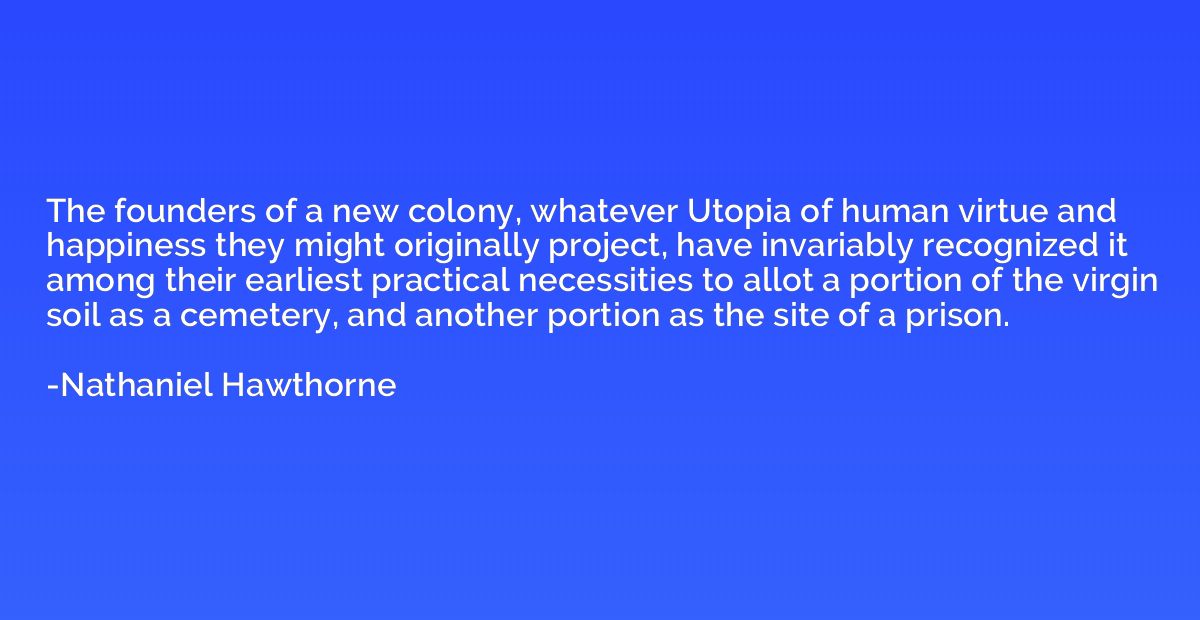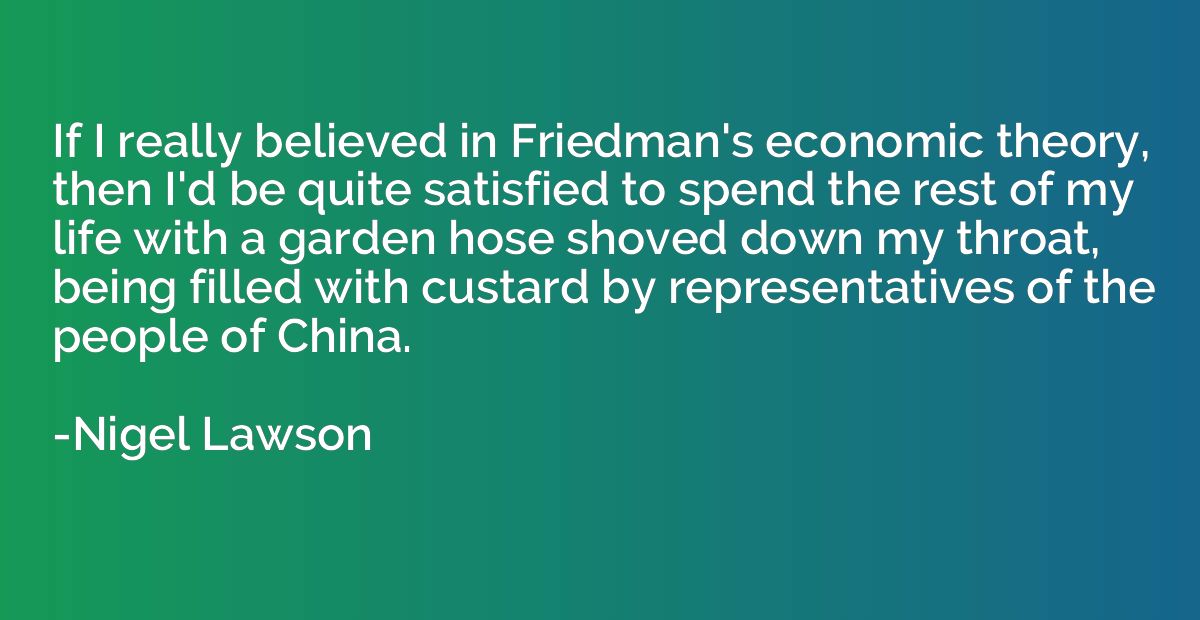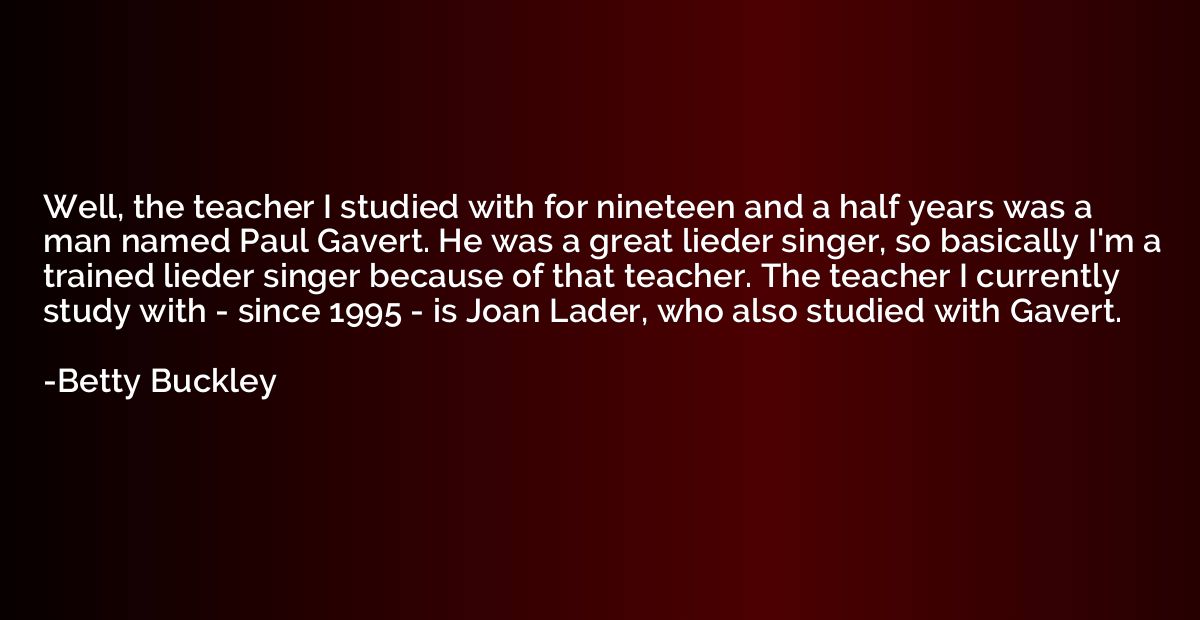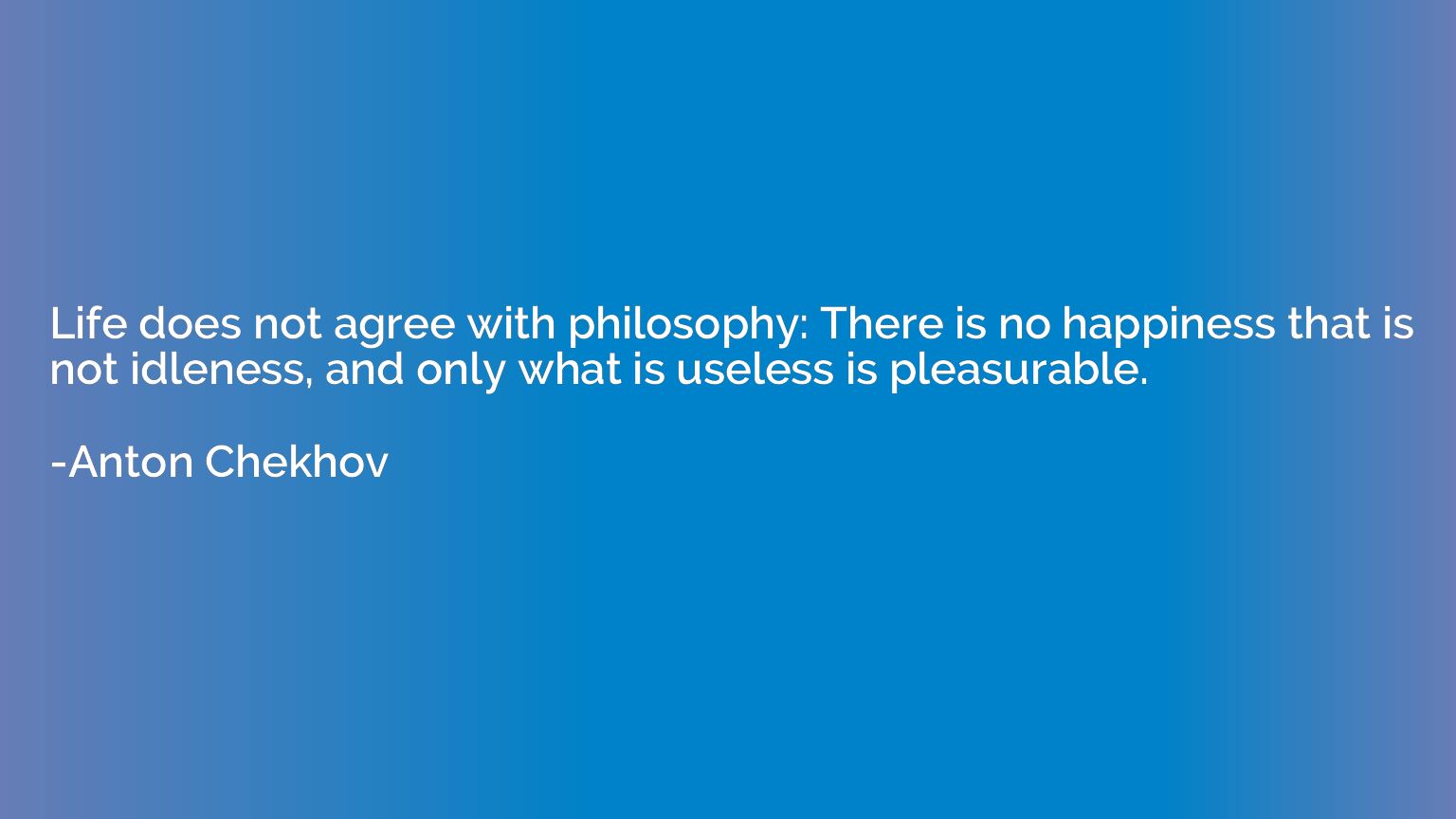Quote by Nathaniel Hawthorne
The founders of a new colony, whatever Utopia of human virtue and happiness they might originally project, have invariably recognized it among their earliest practical necessities to allot a portion of the virgin soil as a cemetery, and another portion as the site of a prison.

Summary
This quote suggests that no matter how noble the intentions of founding a new society or colony are, the reality is that both death and crime are inevitable aspects of human existence. The founders, acknowledging this, allocate space for a graveyard and a prison, demonstrating an understanding that these darker elements will always be a part of any community, despite attempts at creating a perfect society. Therefore, it is vital to prepare and make provisions for them from the very beginning.














